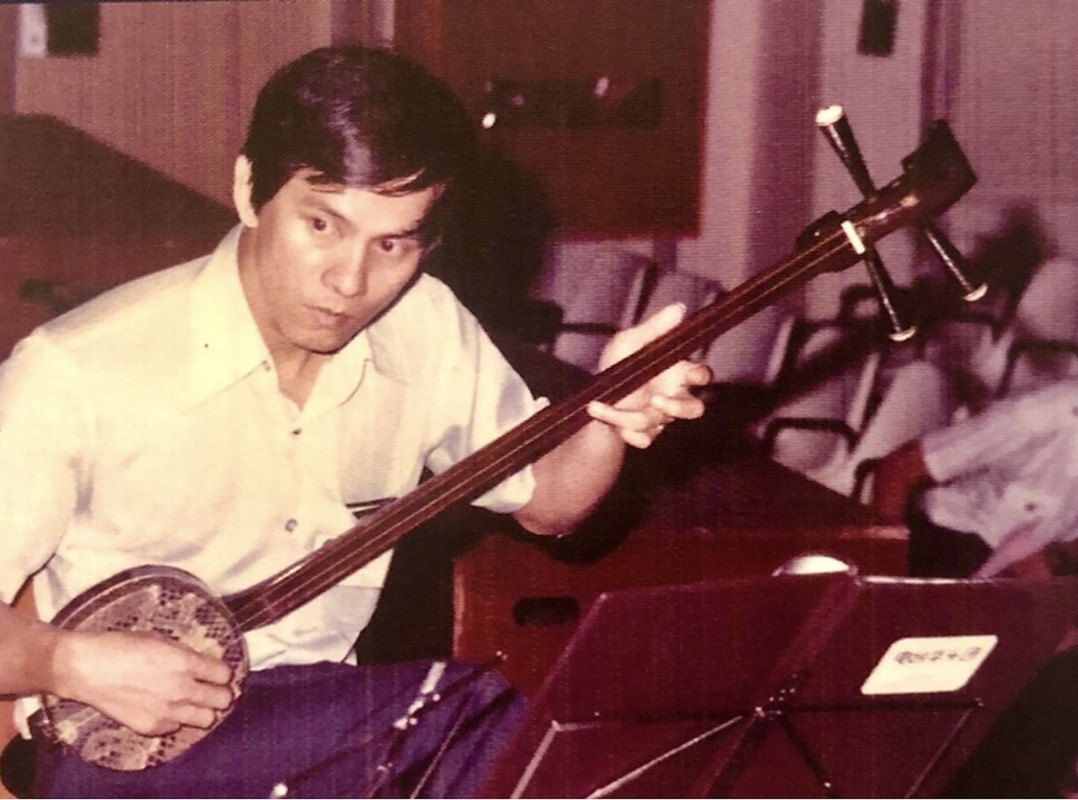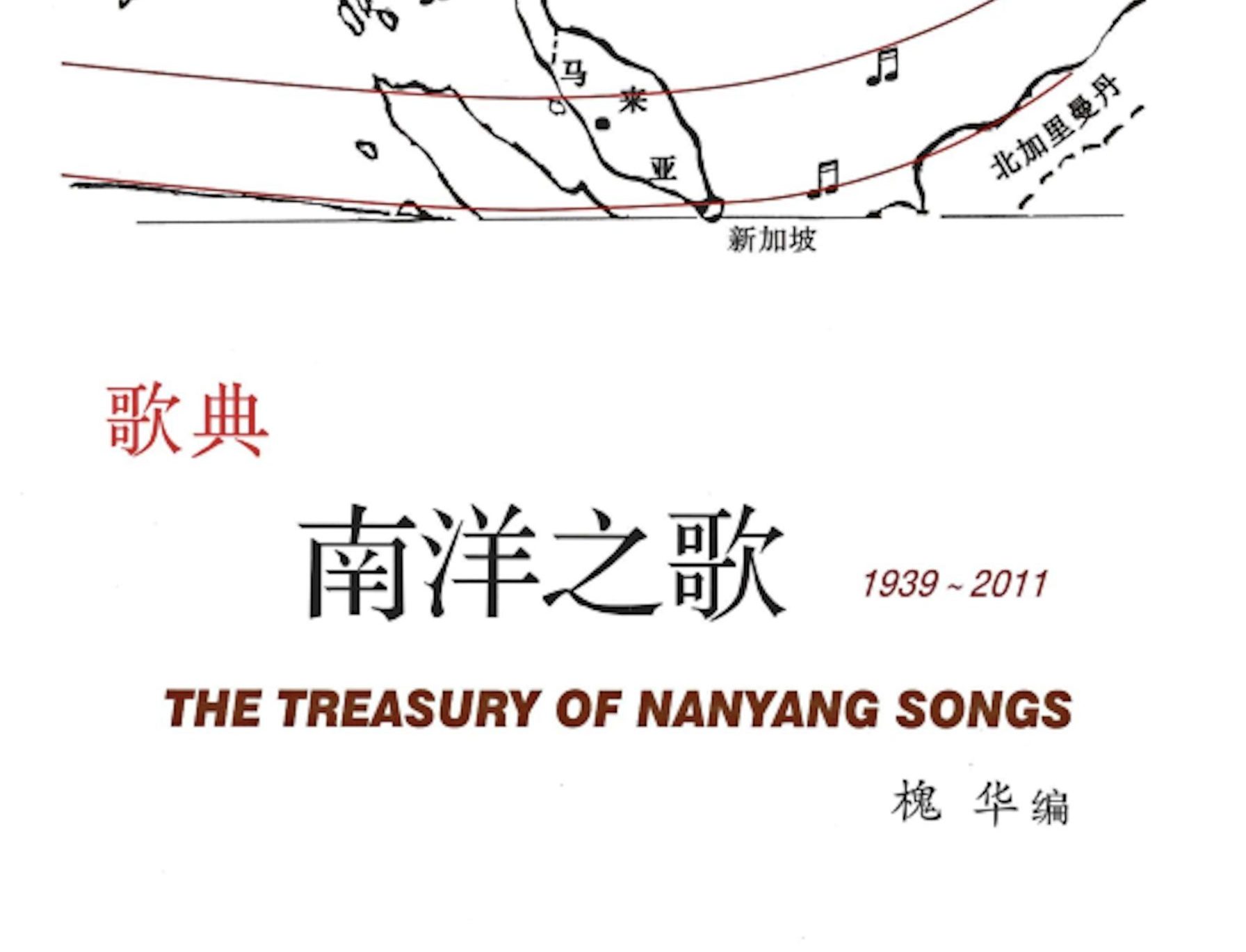Singapore Chinese Orchestra
Founded in 1968, the People’s Association Chinese Orchestra was the predecessor of the Singapore Chinese Orchestra (SCO). It was only in 1992 that it adopted its current name. In 1996, with support and funding from the government, the SCO underwent restructuring to become a national-level professional orchestra, based in the Singapore Conference Hall.
Chinese orchestra activities were already thriving before the founding of the nation, laying the foundation for the establishment of the professional Chinese orchestra. In the mid-1950s, Chinese schools, trade unions, and amateur enthusiasts organised numerous Chinese orchestras. Some influential ones included the Ai Tong/Chongfu Schools Alumni Chinese Orchestra, Kang Leh Musical Association, Singapore Chinese Middle School Student Union and Singapore Chinese High Schools’ Graduates of 1953 Arts Association, as well as Hwa Chong Alumni Chinese Orchestra. The first Chinese orchestra in Singapore with a complete lineup was organised by the Thau Yong Amateur Musical Association in 1959.
In 1968, some musicians from the Central Cultural Committee Chinese Orchestra1 joined the newly established Chinese orchestra under the National Theatre Company. The People’s Association Chinese Orchestra, founded in the same year, was initially a performance unit under the People’s Association Cultural Troupe. After the National Theatre Chinese Orchestra disbanded in 1974, the People’s Association Chinese Orchestra took on the responsibility of promoting and popularising Chinese orchestral music. During this period, it also absorbed some members from the National Theatre Chinese Orchestra. Apart from People’s Association Chinese Orchestra, other active Chinese orchestra groups in the 1970s include Singapore Youth Chinese Orchestra under the Ministry of Education and Singapore Broadcasting Corporation Chinese Orchestra (now City Chinese Orchestra).
From People’s Association Chinese Orchestra to Singapore Chinese Orchestra
The People’s Association Chinese Orchestra was led by various conductors, including Ma Wen (1937–2011), Ng Tai Kong (1943–2001), Li Xueling (1939–1989), Lim Tiap Guan (1939–1998), and Ku Lap Man (1935–2020), among others. By 1984, it had 32 members. After Ku Lap Man’s retirement, the orchestra, after having been renamed the SCO, subsequently hired Qu Chunquan in 1993. During his tenure, Qu actively encouraged Chinese orchestral composers to create their own works, and frequently chose to perform local compositions by Singaporean musicians within the Chinese orchestra repertoire.
In 1996, at the suggestion of then-Prime Minister Goh Chok Tong, the SCO was established as the Singapore Chinese Orchestra Limited, expanding its roster from its original 32 members to 62. This made it the largest professional Chinese orchestra at the national level outside of China.
The following year, Chinese conductor Hu Bing Xu assumed the role of Music Director and Conductor. Under his leadership, the orchestra continued to attract outstanding musicians, contributing to its distinguished international reputation. By 2023, it had a total of 86 full-time musicians, including seasoned musicians from Singapore and abroad, as well as outstanding musical talents cultivated by various arts institutions worldwide.
In 2002, the SCO appointed musician Yeh Tsung, who was born in China and later resided in the United States, as its next Music Director. He relinquished the position in 2023 and assumed the role of Conductor Emeritus. Following Yeh, Quek Ling Kiong took on the role of Principal Conductor, becoming the first local-born Principal Conductor of the SCO. Quek led the SCO in acclaimed and well-received shows such as the Young Children’s Concert, Young People’s Concert, Mother’s Day Concert, Concert-in-Progress, and series of “Concert Seasons”.



From Nanyang to the world
The SCO has always embraced the philosophy of being “the people’s orchestra”, with the goal of using music to strengthen social cohesion. In its early days, its repertoire mainly consisted of classical masterpieces by composers from China, which gradually established the foundation of the orchestra. Today, its music events and cultural performances have evolved to appeal to both refined and popular tastes.
As the nation developed, the SCO began actively exploring its own identity. After 2002, under the leadership of Yeh, it embraced the Nanyang-style Chinese orchestra as its distinctive brand, contributing to Singapore’s unique and diverse multicultural landscape.
The SCO has organised multiple international Chinese orchestral composition competitions to encourage creative works and discover outstanding Nanyang-style compositions. Among them, some notable compositions include Wang Chenwei’s Sister Islands and Confluence; and Law Wai Lun’s Prince Sang Nila Utama and Singa and The First Man on the Sea, Zheng He.
Since its establishment, the SCO has also been invited to perform in various locations across Europe and Asia. In 1998, the orchestra embarked on its first tour in China, performing in Beijing, Shanghai, and Xiamen. Since then, it has been regularly invited to major international arts festivals and music events in China, presenting distinctive Chinese orchestra performances. In 2023, the SCO was invited to the China Shanghai International Arts Festival and presented the Nanyang Legends concert at the Shanghai Conservatory of Music’s Shangyin Opera House. The concert featured several representative works, including Legend of the Merlion, The Sword and the Scroll, Sea Road, and a special composition titled A La Shanghai Ren.
As for Europe, the SCO became the first Chinese orchestra to be invited to perform at the opening ceremony of the Edinburgh Festival in the United Kingdom in 2009. It has also embarked on two European tours in 2005 and 2019 respectively, allowing audiences in Germany, the Czech Republic, Italy, Greece, and more to appreciate its music, one that simultaneously embodies Nanyang characteristics and blends Eastern and Western styles.
During the COVID-19 pandemic, when physical concerts were suspended, the SCO pioneered online concert formats by launching a digital concert series. It included programmes like #DabaoSCO (Packaged Concerts), #CO101 (Chinese Orchestra 101), #roomformusic (Music for Homes), #HumanDiaries (Musicians’ Reflections), and the Virtuoso Series, which featured renowned musicians and masterpieces. Its members were encouraged to spontaneously share their works, fostering interaction between music enthusiasts and musicians. For instance, Composer-in-Residence Wang Chenwei’s composition, Confluence, was presented in the format of a virtual Chinese orchestra with dozens of musicians collaborating remotely, heralding a new mode of Chinese orchestral performance.
The journey from the People’s Association Chinese Orchestra to the SCO has spanned decades. As it expands its reach beyond Singapore to the global music scene, the SCO continues to explore its identity and establish a unique musical style.
This is an edited and translated version of 新加坡华乐团. Click here to read original piece.
| 1 | In 1960, the Central Cultural Committee (later renamed Central Cultural Bureau) Chinese Orchestra of the People’s Action Party was established under an initiative by then-Parliamentary Secretary to the Ministry of Culture Lee Khoon Choy (1924–2016). It was conducted by Lee Yuk Chuan, a pioneer in the Singapore music industry, and performed at various official events.
|
Goh, Ek Meng. Xinjiapo huayue fazhanshi lüe, 1953nian zhi 1979nian [A history of the development of Chinese music in Singapore, 1953–1979]. Singapore: Lingzi Media, 1998. | |
Ho, Terence. “Xinjiapo huayue zhilu” [The development of Chinese music in Singapore]. In Xinjiapo huashe wushinian [50 years of Chinese Community in Singapore], edited by Phua Kok Khoo and Pang Cheng Lian, 211– Singapore: World Scientific Publishing, 2016. | |
Lee, Ming-yen. “Xianshang pin huayue: Xinjiaopo huayuetuan yiyikangyi zhilu” [Enjoying Chinese music online: Singapore Chinese Orchestra’s journey in fighting the epidemic]. SILK ROAD, No.76, April 2021, 16–19 . | |
Leong, Weng Kam. The people’s orchestra: Singapore Chinese Orchestra, 1996–2016. Singapore: Singapore Chinese Orchestra Company Limited, 2016. | |
Zhang, Hey “Shouyao canjia shanghai guoji yishujie, Xinjiapo huayuetuan tianyimo nanyang liangse” [Invited to participate in the Shanghai International Arts Festival, the Singapore Chinese Orchestra adds a touch of Nanyang colour]. Lianhe Zaobao, 15 January 2023. |










